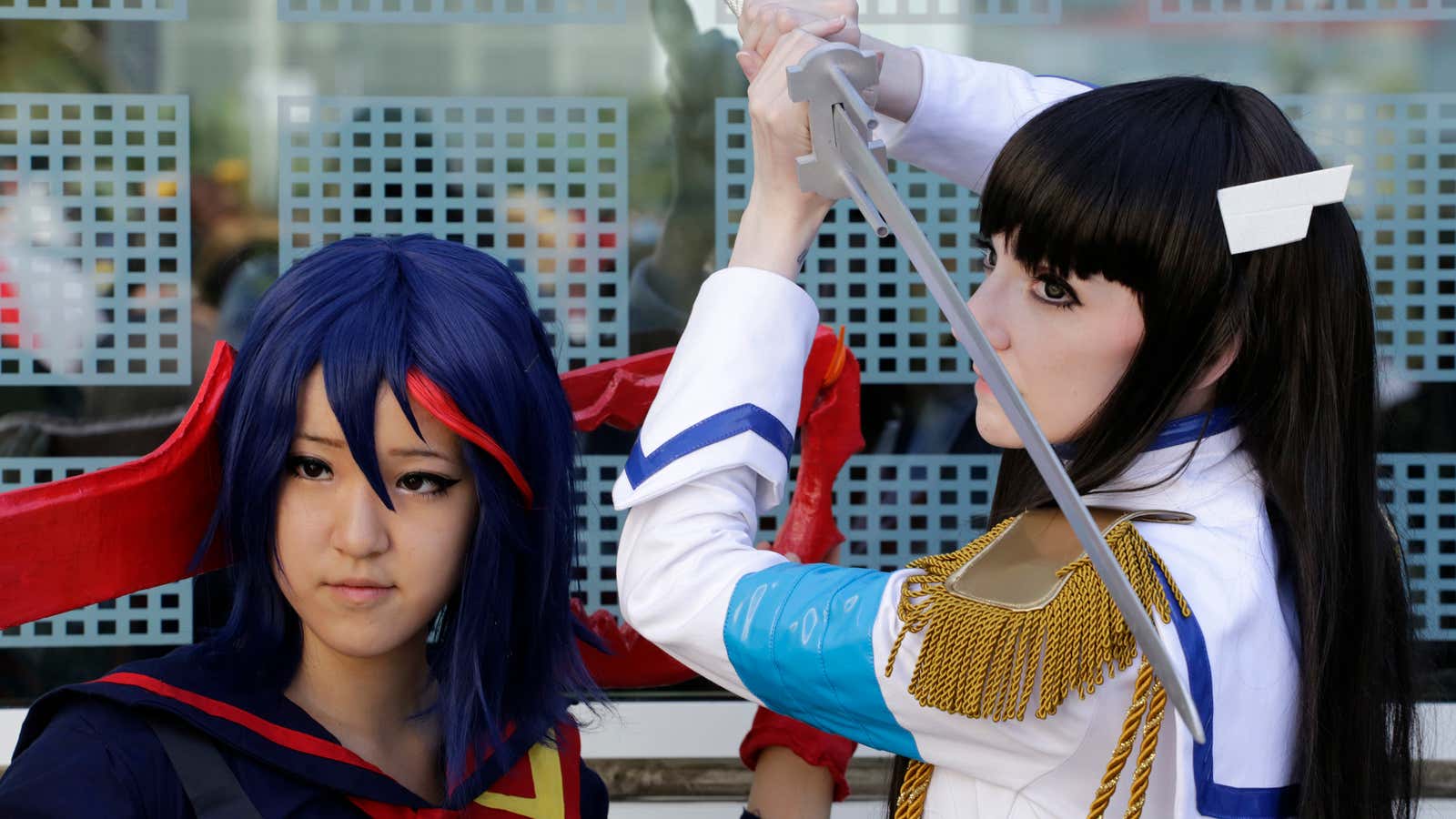China’s policing of how the world talks about Taiwan have shaped the World Health Organization’s coronavirus communiques, airline dropdown menus, and even spread to the niche community of birding. Now, it appears cartoon celebrities can’t escape scrutiny either.
Kiryu Coco and Akai Haato, two virtual Japanese YouTube hosts, were suspended on Sunday (Sept. 27) from live-streaming for three weeks by Cover, a Japanese startup that owns Hololive, which manages entertainers who perform as virtual avatars. The suspension came after the pair last week included Taiwan on a list of countries that had contributed the most to their subscribers, and displayed the self-ruled island’s national flag.
Chinese followers of the two characters were quick to spot the “mistake” and soon angry comments asking for an apology flooded their page on the Chinese streaming platform Bilibili. Beijing claims Taiwan as part of its territory, though the Communist Party has never governed there, and has pressured international organizations and governments to refrain from treating it as a separate country. In recent years the pressure tactics have spread to corporations as well, with the help of lobbying by nationalistic social media users.

Cover said Hololive talents “had become the target of numerous abusive messages and threats to their life or bodily harm.” The company responded by deleting the videos, and following a play adopted by numerous other companies who’ve found themselves in this spot—it issued apologies that read rather differently in Japanese, English, and Chinese.
In the English version of its apology, Cover said it decided to punish the entertainers for divulging “confidential YouTube channel analytics information” and “making statements insensitive to certain nationalities,” but didn’t mention China or Taiwan. In a separate Chinese statement published on Bilibili, however, the agency stated its support for the integrity of China’s sovereignty and the “One-China principle,” saying it respects the feelings of the Chinese viewers and plans to develop in the country in the long run.
Hololive only has about 430,000 followers on Bilibili right now. But the virtual YouTuber trend, which originated in Japan, is gaining popularity overseas, and China has long been an avid consumer of Japanese pop culture. Controlled by humans who use motion-capture to get digital avatars to mirror their movements, the virtual celebrities entertain their fans much like human YouTubers, by chatting to viewers, singing and dancing, or playing video games.
The inconsistency in its statements sparked anger from both followers in China, and outside. While gaming analysts and fans of the virtual YouTuber community criticized the company for yielding to pressure from China, Chinese fans asked the firm to also add the line about its support for the “One-China principle” to the other versions of its apologies.
“This is such an ugly look for the company, which wants to entertain both the mainland Chinese audience and those supporting Taiwan independence,” said a Chinese commentator on Bilibili.
Cover didn’t immediately reply to a request for comment.
The company on Wednesday apologized for the “confusion” it caused and explained it issued such different apologies because it tries to follow the “laws, social norms, common wisdom, and the stance of its current government” in each place it operates in. Cover said in future it would release consistent statements that both conform with local laws and are “universally equitable.”
Good luck with that.
